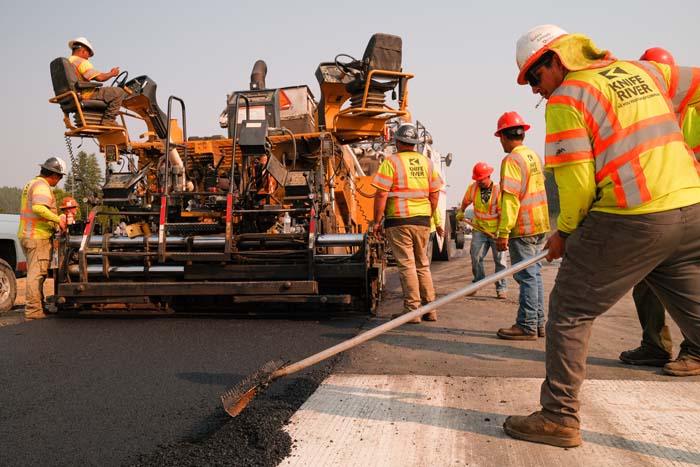Wallowa County exploring new heating solutions
Published 11:12 am Monday, March 11, 2013
Grant from Oregon Department of Energy paying for study of heating options for Cloverleaf Hall in Enterprise
by KATY NESBITT / The Observer
ENTERPRISE – Keeping Wallowa County’s busiest event hall warm and efficient is at the top of the Wallowa County Fair Board’s list of priorities.
Cloverleaf Hall in Enterprise has long been the venue for everything from town hall meetings to dinners, dances and fiddle jamborees. It’s even been a makeshift U.S. Forest Service headquarters when the Wallowa Mountains Office burned down in 2010.
The Fair Board’s concern for heating Cloverleaf is twofold; first, the current expense is outpacing their budget and two, they have a desire to find alternative heating to reduce costs.
At a February Wallowa County Board of Commissioners meeting, board members Brinda Stanley and Velda Bales asked for $10,000 to pay for fuel through the rest of the winter. The commissioners granted the request from their allocation of the state’s video lottery money.
The grant was a much needed shot in the arm for the fairgrounds, but the board wants a long-term solution.
A $9,300 grant from the Oregon Department of Energy will pay for a 6-month feasibility study by Community Solutions, Inc. of Enterprise. The study will determine if using a wood-fired furnace is an affordable option to heat Cloverleaf, the adjacent county buildings, and possibly a pipeline running underground to Les Schwab Tires, approximately a tenth of a mile down Highway 3.
Matt King of Community Solutions said if the study determines the project is a go, the funds do not have to be repaid. If the numbers don’t crunch, then the money will be repaid into a revolving fund.
“(Community Solutions) is the proponent of the project and potential owner,” King said. “If it works out, we will work like a utility, meter each building and sell heat as a commodity.”
Co-located businesses sharing a small, heat utility in a cluster is not new. King said the idea has been around for a long time and is being used in Europe and New England, but nowhere currently in the West.
“It’s an old concept and been around for 100 years,” King said.
King said the department of energy granted the money with the idea that if the project is feasible, it will help create a market for forest “waste” products.
“The department of energy would like to see a project built that provides lower cost heat,” King said. “If the feasibility study says it doesn’t work, we won’t do it.”
Mike Hayward, Board of Commissioners Chairman, serves on the fair board and said he is interested to see the study’s results.
“If it proves to be feasible, it will build a larger incentive for production and it would likely be cheaper, especially if we can get a few of these facilities established,” he said.
Enterprise City Hall is also having a feasibility study conducted for a similar project funded by the Oregon Department of Forestry. In 2008, the Enterprise School installed a wood-fired boiler which burns 1/50th of the total slash piles left in the woods each year, King said.
The study will determine the costs of building and running the system as well the place best to locate the approximately 20-by-25 foot facility, said King.
Besides the plant, the pipes for distribution would be buried underground, creating the best thermal insulation, said King.
If the new heating system is installed, the current one, which burns heating fuel, will remain in place as an auxiliary system.
“If the plant went down, the existing one would work as a backup,” King said.
Energy efficiency is an on-going concern at the fairgrounds. In the fall of 2010, a new roof and solar panels were installed on Cloverleaf Hall. The project was funded by a combination of federal and state tax credits, the Oregon Energy Trust, a Blue Sky Grant from Pacific Power, and private investment dollars. The Fairgrounds uses roughly $4,000 in electricity a year, which will be more than offset by the solar project, said Jared Hillock of Enterprise Electric.
During sunny days, the fairgrounds are powered by the solar panels and any excess energy will be put on Pacific Power’s energy grid. At night and on cloudy days energy is taken from the grid. In all, the system will provide more energy than it uses and will provide energy credits for the fairgrounds.
Hillock explained that the panels work best when it’s cold and sunny.
“The more sun the more efficiently they work,” Hillock said.






